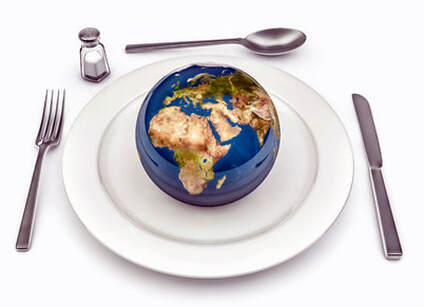But what about the salt – what exactly does that represent? Salt was used for many different purposes in the Middle East during the first century, so there are a number of possibilities regarding what Jesus intended. We should consider all of the most likely meanings.
1. Perhaps the most obvious possibility is that Jesus’ reference to our being “salt” has to do with the use of salt as a flavor enhancer (Job 6:6) – that we are to make the world more pleasing or “palatable” to God (Romans 8:8).
2. Salt was also widely used to preserve food, especially meat which would spoil quickly in the heat of the Palestinian desert environment. The sense of long-lasting preservation is seen in the biblical expression “a covenant of salt” (2 Chronicles 13:5).
3. Salt was utilized to purify things such as offerings made in the tabernacle or temple (Leviticus 2:13). This is the meaning behind Jesus’ words “For everyone will be salted with fire ...” (Mark 9:49) and Paul’s words “Let your conversation be always full of grace, seasoned with salt” (Colossians 4:6).
4. On the other hand, the ability of large quantities of salt to kill vegetation and render land unusable led to salt being used metaphorically for the concept of emptiness and destruction (Job 39:6, Ezekiel 16:4, etc.).
5. Despite the fact that large quantities of salt kill all plants, much smaller quantities were used as the world’s oldest chemical fertilizer. In fact, after vegetation has been killed by a heavy application of salt, the plants often eventually come back more profusely. Because the word “earth” in Jesus’ expression “you are the salt of the earth” can mean “soil,” some commentators feel that he may have meant his followers were to bring new life to the world, like a little salt to soil; but the likelihood of this meaning is certainly unsure in this context.
6. Ancient peoples also often put salt on the wicks of oil lamps to cut smoke and increase their brightness. This meaning seems attractive as the use of salt in this sense would then be parallel with light, in believers being both “salt and light.” But in Jesus’ words in Matthew 5:13-16, salt is discussed before light is mentioned, indicating he probably had a more common use of salt in mind.
Many other meanings have been claimed for Jesus’ words based on other uses or characteristics of salt. For example, some have claimed that just like salt, believers can make the world thirsty for God’s truth. But this and similar ideas are somewhat fanciful and would not have been understandable in the context of what Jesus said without explanation. Likewise, it is commonly thought that Roman soldiers were paid in salt (hence the word “salary”), so that salt might have been a symbol of the disciples’ “worth,” but in fact the Empire’s soldiers were paid in normal money (or not at all), but not with salt.
Because Jesus did not explain which aspect of salt he intended in using the metaphor, we must presume that he had the most basic aspect in mind, which would mean that either or both meanings 1 and 3 above – salt as a flavor enhancer or a purifier – are most likely what he had in mind and how his hearers would have understood the expression. Understood in either of these ways, being the “salt” of the earth would certainly mean that we represent the world to God, just as in being the light of the world we represent God to humanity (Matthew 5:16).
But Jesus’ words also hold some practical aspects in his use of salt as a metaphor. After saying “you are the salt of the earth,” Jesus proceeded to say “But if the salt loses its saltiness, how can it be made salty again? It is no longer good for anything, except to be thrown out and trampled by men” (Matthew 5:13). This is interesting as salt cannot actually lose its saltiness unless it is diluted by water or mixed with other substances. Salt spoiled in such a way might often have simply been thrown out on the street, and it is also possible that such low grade salt was spread on Roman roads to inhibit vegetation growth. In either case it would be “trampled by men,” but the lesson would be that our belief and behavior must not be diluted by things of the world around us.
There is another way that spiritually we might lose our “saltiness.” Jesus also told his disciples “Salt is good, but if it loses its saltiness, how can you make it salty again? Have salt among yourselves, and be at peace with each other” (Mark 9:50, emphasis added). This suggests that our saltiness can be lost through a lack of peace with one another, and that we may cease to fulfill our function of making the world more acceptable to God by our “saltiness” either being diluted, as we saw above, or by not living peaceably with others. These obstacles to successful discipleship are both worth thinking about.

 RSS Feed
RSS Feed
